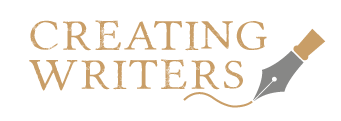Charlie Laidlaw is an author and tutor at Creating Writers
Writing in the past tense is the construct used in most novels by most novelists. We expect it; it doesn’t jar with us and, frankly, it’s easier.
It allows you, the writer, to manipulate time – to move forwards and backwards.
The reason we’re so familiar with the past tense is, perhaps, that it goes back to our early ancestors and the oral tradition of telling stories to the next generation. Their stories were inevitably set in the past.
There are other reasons for using the past tense – for example, if your story takes place over several years or across generations. Or if your book has several points of view. It’s also easier to change pace in the past tense, or to tell a part of the story in flashback.
Consider this passage:
Example A: “John woke up early with a hangover, walked to the shop at the end of the street and bought a newspaper.”
Or:
Example B: “John wakes up early with a hangover, walks to the shop at the end of the street and buys a newspaper.”
Which feels right? In the past tense example, the sentence seems inconsequential. Written in the present tense, it feels more important.
Real time
The trouble with writing in the present tense is that it’s all in real time. The reader is right there at your shoulder and breathing down your neck.
Write in the past tense, and you can edit out the boring bits of narrative and dialogue. Write in the present tense, and you have to pay attention to the here and now. When John wakes up, how does he feel? How does he walk to the corner shop? Briskly? Slowly?
But as a first-timer writer, writing in the past tense is the easier choice. However, that doesn’t mean you can’t use the present tense, or indeed use both.
That would work if your book is set across time; you might choose to write the past chapters in the past tense, and the present chapters in the present tense.
Or the book may have two narrators, or narrative angles. One could be in the past tense, the other in the present.
That said, changing tense within a book is complex. It’s undoubtedly a clever construct, but don’t get carried away by being clever. Concentrate instead on the strength of your story, and the characters that populate it.
Courses
But if it works in the (normal) past tense, go for it. If you really feel it works better in the present tense, go for it. But beware of shifting between past and present until you are absolutely settled into your role as a writer.
My new book, The Days of Our Birth, to be published later this year, uses both past and present. Because I have learned my trade and therefore how to make it work.
If you need help getting started on your writing journey, Creating Writers has two online creative writing courses, an introductory course and our flagship Diploma course.
It’s an intensive course, with lots of face-to-face tuition. It also comes with a real qualification at the end of it.
That could not only kick-start your writing career but provide you with a valuable qualification for your resume.
Our courses are intended to give you the confidence and skills to understand what makes great writing. On the Diploma course, we’ll also get you started on your novel.
For more information, you can contact us here.
Photo by Sonja Langford on Unsplash

